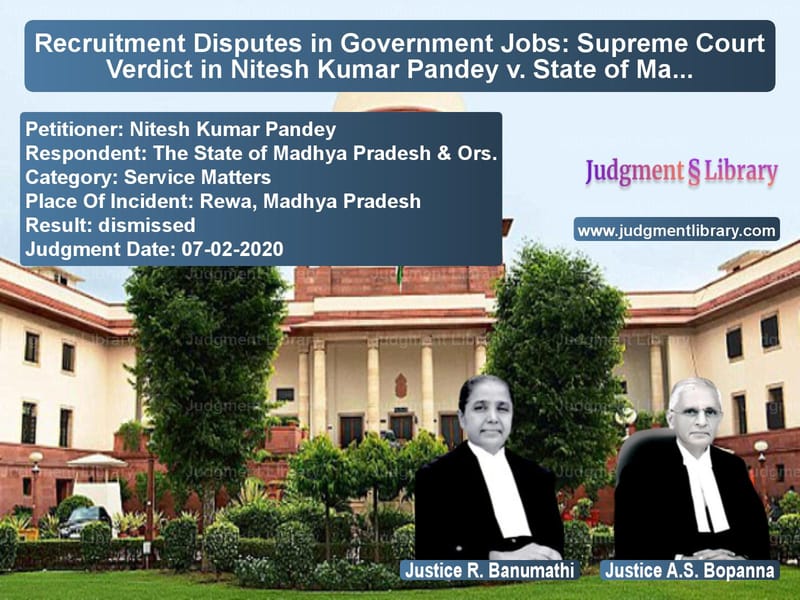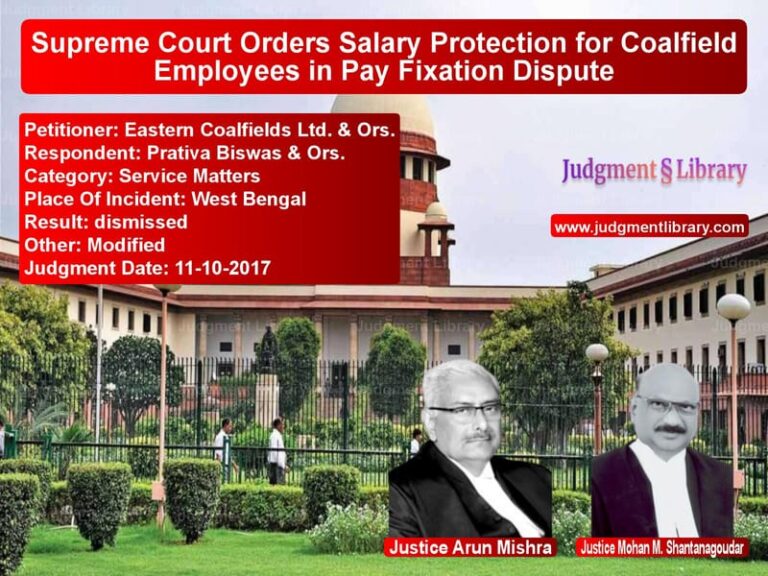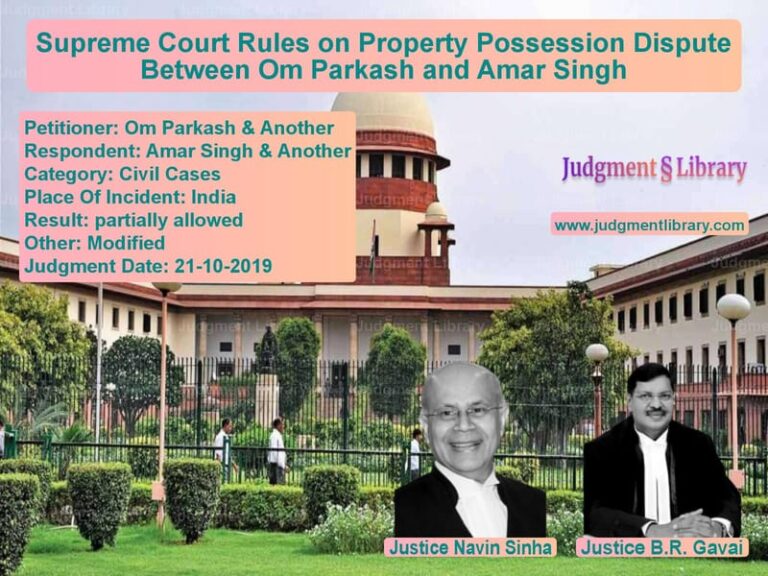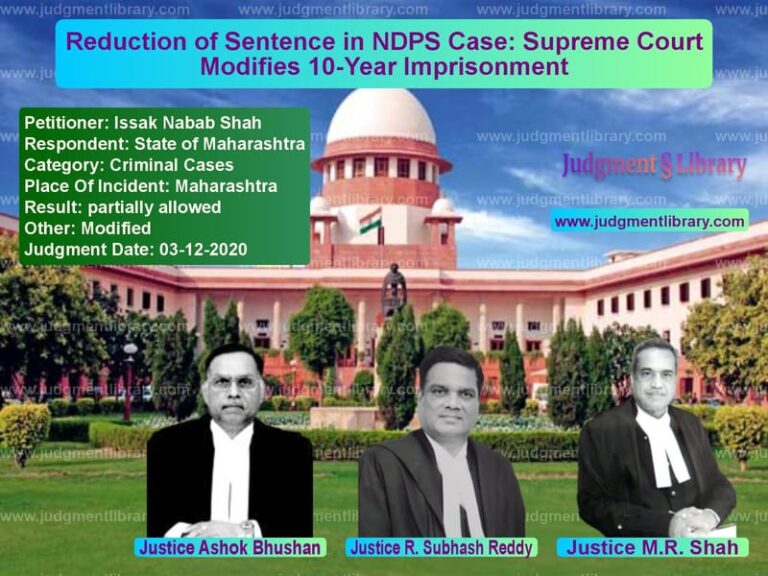Recruitment Disputes in Government Jobs: Supreme Court Verdict in Nitesh Kumar Pandey v. State of Madhya Pradesh
The case of Nitesh Kumar Pandey v. The State of Madhya Pradesh & Ors. revolves around a dispute regarding the selection process for the post of Gram Rojgar Sahayak under the Mahatma Gandhi National Rural Employment Guarantee Scheme (MGNREGS). The Supreme Court examined whether the government could introduce a new selection criterion, namely a computer efficiency test, after the recruitment process had already started.
The dispute arose after the Madhya Pradesh government issued guidelines in 2012 for the selection of Gram Rojgar Sahayaks. However, in 2014, the office of the Collector, Rewa, issued a revised schedule introducing a computer efficiency test, which was not mentioned in the original guidelines. Candidates who failed the new test were excluded from the final selection list, leading to legal challenges.
Arguments by the Petitioner
The petitioners, who were initially shortlisted but later excluded due to the computer efficiency test, argued that the selection process should be conducted strictly according to the 2012 guidelines. They contended:
“The selection procedure and methodology of giving marks do not include the computer efficiency test and the marks arising out of such test.”
They further argued that the introduction of a new criterion midway through the process violated the principles of fairness and transparency.
Arguments by the Respondent
The State of Madhya Pradesh defended the additional test, stating that proficiency in computers was essential for the role. They argued:
“The entire process under MGNREGS is computerized, and the Gram Rojgar Sahayak must have the necessary skills to implement the scheme effectively.”
The government contended that the petitioners had willingly participated in the test and could not challenge it after failing.
Supreme Court’s Analysis
The Supreme Court examined whether the revised schedule issued by the Collector, Rewa, could override the 2012 guidelines applicable to the entire state. The Court held:
“The alteration of the requirement by prescribing an additional criterion only in respect of one district without authority to do so will not be sustainable.”
The Court further ruled that the introduction of a new requirement after the selection process had already commenced was unlawful and could not be justified.
Final Verdict
The Supreme Court upheld the decisions of the Madhya Pradesh High Court, ruling that the exclusion of candidates based on the newly introduced computer efficiency test was unjustified. The judgment reinforces the principle that recruitment processes must adhere strictly to pre-defined guidelines and that authorities cannot introduce new criteria arbitrarily.
Petitioner Name: Nitesh Kumar Pandey.Respondent Name: The State of Madhya Pradesh & Ors..Judgment By: Justice R. Banumathi, Justice A.S. Bopanna.Place Of Incident: Rewa, Madhya Pradesh.Judgment Date: 07-02-2020.
Don’t miss out on the full details! Download the complete judgment in PDF format below and gain valuable insights instantly!
Download Judgment: Nitesh Kumar Pandey vs The State of Madhya Supreme Court of India Judgment Dated 07-02-2020.pdf
Direct Downlaod Judgment: Direct downlaod this Judgment
See all petitions in Employment Disputes
See all petitions in Recruitment Policies
See all petitions in Public Sector Employees
See all petitions in Judgment by R. Banumathi
See all petitions in Judgment by A. S. Bopanna
See all petitions in dismissed
See all petitions in supreme court of India judgments February 2020
See all petitions in 2020 judgments
See all posts in Service Matters Category
See all allowed petitions in Service Matters Category
See all Dismissed petitions in Service Matters Category
See all partially allowed petitions in Service Matters Category







